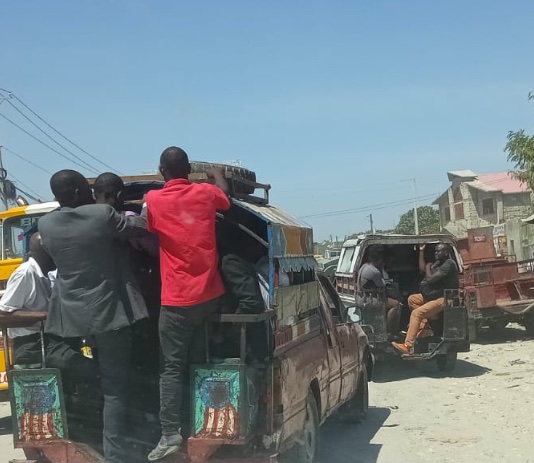Haiti. (Photo: Geopolitical News / ML).
by Francesco Giappichini –
The presidential elections will be held in the Dominican Republic on May 19th. The challenger to the outgoing head of state Luis Abinader, who can roughly be defined as a reformist, will essentially be former president Leonel Fernández: twice at the helm of the nation, the last until 2012. The candidate Abel Martínez Durán, mayor of Santiago de los caballeros, in fact, seems to be behind in the polls. Indeed, according to the latest electoral survey, Abinader should win in the first round, with 62.4% of the votes. Only a modest 22.3% is credited to the leader of Fuerza del pueblo (FP): a left-wing formation on paper.
However, it is necessary to bring order to the ideological profiles of the candidates, also for the repercussions on foreign policy. Abinader, to begin with, presents himself as a centre-left leader; and yet the modern Partido Revolucionario (Prm) is rather a party of the Nation, careful not to reveal itself to the right. And to support the most conservative positions, as demonstrated by the management of the Haitian crisis. The path of Fernández, an old political fox, father of the country, and a man for all seasons, is different. After leading the Partido de la Liberación Dominicana (PLD) for years, which represented the moderate demands in the local bipolar system, in 2019 he departs from it.
Between conflicts with other leaders and accusations of fraud in the primaries. Right up until the last point, the one among the progressives. However, his mandates were marked by macroeconomic stability and large infrastructures, but also by little attention to health and education. The biggest challenges for the winner will concern the relationship with Haiti: from large-scale expulsions, stigmatized by humanitarian organizations and members of the Catholic Church, to the construction of the controversial wall near the border (almost 400 kilometres) with its turbulent neighbour. And meanwhile Abinader, in an electoral campaign atmosphere, declared that he does not intend to comply with the calls to suspend mass expulsions; a request to this effect had been formulated by the United Nations High Commissioner for Human Rights, the Austrian Volker Türk.
In the last year, in fact, around 225 thousand people were deported, of which 640 were pregnant women. The president repeats that the country will continue to apply its laws and its Constitution, reiterates that he has been warning about the Haitian “chaos” for three years, and that the Republic cannot be expected to resolve the situation alone. He therefore excludes the possibility that the national territory could host an immense refugee camp, which should accommodate the approximately 350 thousand displaced Haitians. Possibly, he suggests, the island of Tortuga, and the Ile de la Gonâve, in Haitian territory, should be taken into consideration. For the Dominican leader we are faced with a question of security, and at the same time of sovereignty, while the accusations of apartheid and racism are branded as ridiculous. The efforts to complete the border wall, also seen favorably by Fernández, which will require an investment of 120 million dollars, should also be read in this direction. A first section is under construction (partly in concrete, partly in metal fence) measuring 48 kilometers in length and 3.6 meters high. A second piece, over one hundred kilometers long, will then be raised. Surveillance towers, solar cameras and the use of soldiers equipped with drones are planned.
